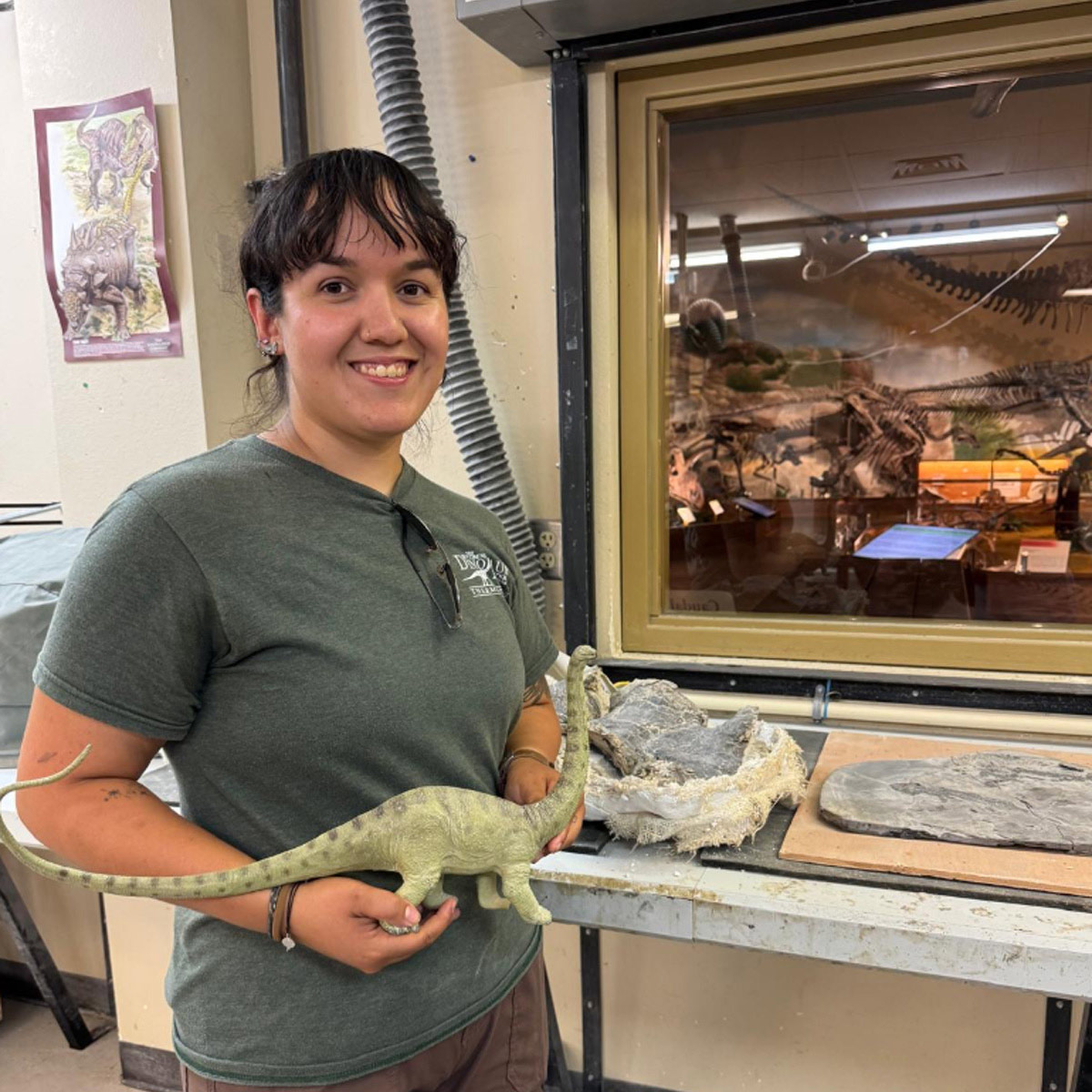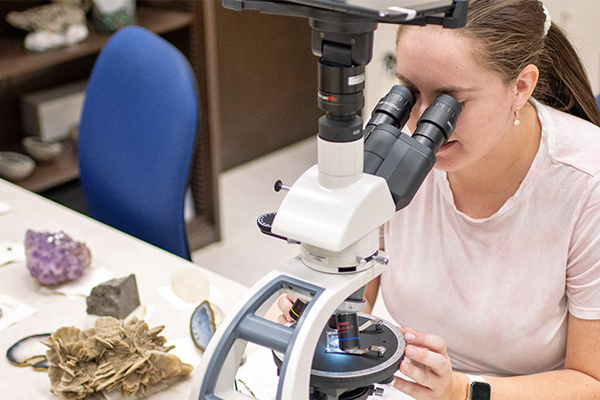Posted on October 10, 2025 by College of Sciences

Jaida Veiga, Geosciences M.S. Student
By Lauren Garza, Administrative Assistant
Jaida Veiga, a first-generation student in the Department of Earth and Planetary Sciences at The University of Texas at San Antonio, is pursuing an M.S. in Geosciences. Her passion is paleontology, the scientific study of ancient life on Earth through fossils, including bones, shells, plants, and trace remains, and understanding the evolution of life.
Jaida originally applied to UT San Antonio as physics major. She had always known she wanted to be a scientist, drawn to the mysteries of the physical world. During her first semester, she took an introductory course and became fascinated by how vast Earth Science could be.
Three years ago, she decided to focus on paleontology, specifically invertebrate paleontology, which studies fossils of animals that lack a vertebral column. This led her to switch to the Department of Earth and Planetary Sciences.
"If you love rocks, learning about Earth history, or being outside, this is the place to be!" Jaida said. "The Earth and Planetary Sciences department studies a wide range of geological topics, from water contamination and minerals on Mars to volcanic activity and mountain building events."
Jaida quickly got involved in research to expand her knowledge.
"In my experience, it's relatively simple to get involved with research and projects," she said. "The faculty and staff in my department always have something for students to work on and love to involve undergraduate students in their research."
Her research focuses on fossil ammonites from the Late Cretaceous Pierre Shale. She discovered differences in morphology and size between male and female ammonites, helping determine their sex based on conch size, shell shape, and ornamentation.
"The purpose of this research was to determine if the organism was either male or female based on analyzing its conch size, morphologies, and ornamentations," Jaida said.
Jaida also values the range of opportunities she had as an undergraduate. One of her favorite experiences was working at dig sites like The Wyoming Dinosaur Center, where she was a paleontology museum and field intern.
"Every day, I managed and excavated sauropod (long-neck dinosaur) fossils using proper field techniques and documentation, all while hosting groups of tourists," she explained.
Currently, Jaida is researching a potential new species of Permian ammonoids from Las Delicias, Coahuila, Mexico. She studies the shapes, shell joining lines, and evolutionary relationships of these ammonites, comparing them to closely related species to understand their similarities and differences.
She credits her positive experience to Janet Vote, assistant professor of practice in the Department of Earth and Planetary Sciences.
"She has been my mentor, advisor, friend, and positive role model throughout my undergraduate and graduate journey," Jaida said. "Navigating a less popular field at UT San Antonio and completing much of my research independently would have been very difficult without Professor Vote's guidance and encouragement."
One piece of advice that Jaida emphasizes is to explore new opportunities.
"Take advantage of any experience and get involved! You may have started your program with a very specific discipline or career in mind, but people change. Don't be afraid to seek a new experience," she said.
Jaida is currently applying to Ph.D. programs, where she plans to continue her research on ammonoids.

Explore the EPS Department!
With research centers such as the Center for Advanced Measurement in Extreme Environments and the Institute for Water Research, Sustainability and Policy, students have access to diverse research opportunities to foster their education.
Recent EPS Spotlights
View More Spotlights



